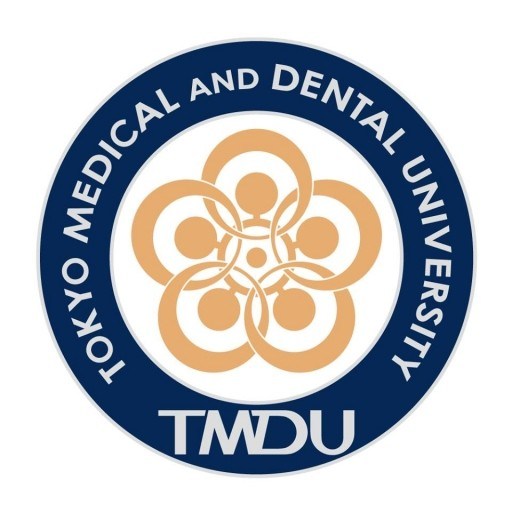Photos of university
The Department of Medical Science at Kyushu University offers a comprehensive undergraduate program designed to cultivate future leaders in the biomedical and health sciences field. This program provides students with a solid foundation in both basic and clinical sciences, integrating cutting-edge research with practical applications to prepare graduates for diverse careers in medicine, research, healthcare, and academia. The curriculum encompasses a wide array of courses covering human anatomy, physiology, biochemistry, genetics, microbiology, pharmacology, and pathology, ensuring students gain a holistic understanding of the human body and disease mechanisms. Students are encouraged to develop critical thinking, problem-solving, and experimental skills through laboratory work, seminars, and collaborative projects, fostering innovation and inquiry.
The program emphasizes the importance of translational research, aiming to bridge laboratory discoveries with real-world clinical practice to improve patient outcomes. Students also have opportunities to engage in internships, clinical rotations, and international exchanges, broadening their perspectives and cultural understanding in the context of global health challenges. Kyushu University's state-of-the-art facilities and experienced faculty members support a dynamic learning environment, integrating interdisciplinary approaches to medical science. Graduates of this program are well-equipped to pursue careers in medical research, healthcare policy, pharmaceutical industries, or further specialized education in medicine and allied health disciplines. Through a curriculum that balances theoretical knowledge with practical skills and ethical considerations, the Department of Medical Science at Kyushu University aims to develop compassionate, competent, and innovative healthcare professionals dedicated to advancing human health and well-being.
Laboratories |
|
Anatomy and Neuroscience |
|
Developmental Biology |
|
Medical Biochemistry |
|
Medical Biophysics and Radiation Biology |
|
Biochemistry |
|
Anatomy and Cell Biology |
|
Molecular Physiology |
|
Pharmacology |
|
Clinical Pharmacology |
|
Integrative Physiology |
|
Clinical Neurophysiology |
|
Pathophysiological and Experimental Pathology |
|
Anatomic Pathology |
|
Neuropathology |
|
Clinical Chemistry and Laboratory Medicine |
|
Bacteriology |
|
Virology |
|
Biomedicine |
|
Preventive Medicine |
|
Environmental Medicine |
|
Forensic Pathology and Sciences |
|
HealthCare Administration and Management |
|
Healthcare Management |
|
Health Communication |
|
Disaster and Emergency Medicine |
|
Geriatric Medicine |
|
Cancer Therapy and Research |
|
Medicine and Biosystemic Science |
|
Center for Cellular and Molecular Medicine |
|
Medicine and Clinical Science |
|
Medicine and Bioregulatory Science |
|
Cardiovascular Medicine |
|
Respiratory Medicine |
|
Neurology |
|
Neuropsychiatry |
|
Psychosomatic Madicine |
|
Environmental Medicine and Infectious Diseases |
|
Clinical Radiology |
|
Surgery and Oncology |
|
Surgery and Science |
|
Cardiovascular Surgery |
|
Urology |
|
Orthopaedic Surgery |
|
Neurosurgery |
|
Ophthalmology |
|
Otorhinolaryngology, Head and Neck Surgery |
|
Dermatology |
|
Anesthesiology and Critical Care Medicine |
|
Pediatrics |
|
Pediatric Surgery |
|
Obstetrics and Gynecology |
|
Medical Education |
|
Basic Stem Cell Biology |
|
Stem Cell Regulation |
|
Developmental Stem Cell Biology |
|
Molecular and Clinical Genetics |
|
Epigenomics |
|
Cancer Genetics |
|
Molecular and Cellular Biology |
|
Organogenesis and Regeneration |
|
Immunogenetics |
|
Neurofunctional Genomics |
|
Host Defense |
|
Molecular Immunology |
- Application for Recognition of Academic Requirements
- Application Form
- Official Academic Transcript
- Graduation Certificate or Statement that confirms expected graduation
- Permission from your preferred supervising Professor
- Essay The title should be “The reason why I apply the master course.”
- Examination Card, Collation Card ; Paste your photograph taken within the past 3 months.
- Mailing Card (Please write your name and address.)
- Receipt of Screening Fee 30,000 yen.
- An envelope. Size: 12 cm X 23.5 cm. Write your name and address and put a stamp (¥362).
- Certificate of Alien Registration Card; Requirement for the applicant who resides in Japan.
- Enrollment Fee: 282,000 yen
Scholarships
- Japanese Government Scholarship
- Embassy Nominated Japanese Government Scholarship
The Medical Science program at Kyushu University is designed to provide students with a comprehensive understanding of human health and disease, integrating fundamental sciences with clinical applications. The program aims to cultivate medical professionals who are equipped with both the theoretical knowledge and practical skills necessary to contribute effectively to healthcare and medical research. It offers a multidisciplinary curriculum that covers various fields, including Anatomy, Physiology, Biochemistry, Pharmacology, Pathology, and Microbiology. Students are encouraged to participate in hands-on laboratory work and clinical practice, enabling them to develop critical thinking, problem-solving abilities, and communication skills vital for medical practice.
The program emphasizes innovative approaches to medical education, incorporating advanced technology such as simulation-based training and digital learning tools. Students have opportunities to engage in cutting-edge research projects under the guidance of experienced faculty members, fostering an environment of inquiry and scientific discovery. The program also promotes international collaboration, allowing students to gain global perspectives on healthcare issues through exchange programs and joint research initiatives with partner institutions worldwide.
Graduates of the Medical Science program are prepared to pursue careers in various fields, including clinical practice, medical research, healthcare administration, and education. The program aligns with the broader goals of Kyushu University to contribute to societal well-being through excellence in education, research, and community service. Furthermore, the curriculum is regularly updated to reflect the latest advances in medicine and biomedical sciences, ensuring that students receive relevant and high-quality education. Overall, the program is committed to developing competent, compassionate, and innovative medical professionals who can address contemporary health challenges and improve patient outcomes both within Japan and internationally.









